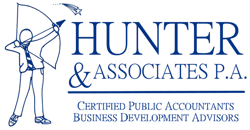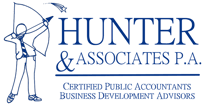.jpg?width=1210&name=Did-You-Get-This-Call-From-the-IRS-(Listen).jpg)
If your business is anything like ours, it probably gets hundreds of unsolicited emails and calls every week. Whether it’s a seemingly innocuous request for payment information or a blatant attempt to swindle the company, scammers are constantly out to get our (and your) money and private information. Both are desirable to scammers, but information may be even more valuable than cash because they can sell it to numerous other fraudsters.
While many companies may feel they have a handle on these types of unlawful activities, scammers are getting increasingly savvy. Your business and your team are at risk right now if you are not properly prepared for common scams.
With so much attention being paid to cybercrimes like credit card skimming, phishing emails, and computer viruses, old-school schemes are still alive and well. Why would a scammer keep going back to the same bag of tricks over and over? The answer is obvious – they still work!
These simple scams are falling between the cracks of companies’ well-organized defenses to rob people every day:
Types of Scams Others Have Been a Victim Of:
- IRS Call
Our team was recently contacted multiple times by the IRS about their taxes, which means it must be serious! Did you get the same voicemail?
LISTEN TO THE CALL HERE:
If you have been called by the IRS as well, you likely had the same reaction – fear followed by skepticism. These calls are one of the most common business scams right now because they are universal. Everyone pays taxes, so everyone is a target. (And if you don’t pay your taxes, you are an even bigger target!) This scam preys on businesses who know that they owe back taxes and business owners that do not keep good tax records.
The scammers will ask for money to cover tax penalties and fees, or for funds to bring tax payments current. They will often threaten to bring in law enforcement authorities to arrest owners, take their driver’s licenses, deport them, and so on.
- Overpayment
Did a new customer overpay for his/her purchase? Sounds like a great problem to have, right? Be wary. Most business owners are so thankful to get customers that they will not have to chase down for payment that they let their guard down. However, this is an age-old check scheme! The customer will give an excuse to explain the payment situation and ask for the remainder sent back. After the business writes a check or wires the money to cover the difference, the original check bounces. The unsuspecting business has now been duped out of the difference, and in cases where the product has already been shipped or the service been performed, it is robbed of the cost of that as well.
- Business Award
Always be skeptical of winning an award that you have never heard of or that requires payment to accept. Scammers play on the hubris of business owners by notifying them that they have won a local award or industry accolade and then ask for payment to be considered, get their name printed in a phony publication, issue the award, or hold a public event to honor the recipient. Businesses that fall victim to this scheme end up being swindled and having their pride hurt along the way to boot.
- Directory Listings
Whether it is a physical or online directory, asking business owners to pay for placement within something that should be free is a typical scheme. Industry listings and Yellow Page placements are common targets for this trick, but other locations like the BBB are also at risk.
Fake marketing companies put a new twist on this old scam by promising first page listings on top search engines while particularly smarmy fraudsters will even impersonate Google, calling businesses and informing them that their search listings are in jeopardy of being deleted.
- Office Supplies
It may surprise you to learn that over the last 20 years, office supply scams have continued to plague businesses. In fact, a Senate Committee on small business reported that $250 million is paid annually to scammers running these types of schemes. Typically, these involve fake companies taking orders for office supplies and then never delivering the products or sending bogus invoices for typical products that would be ordered by a business and hoping for payment.
Remember, scams do not need to be sophisticated for scammers to make money because even if a small percentage of targeted businesses ends up paying, the scammers are still making money for doing little more than sending a stock email or invoice.
How to Spot a Scam
In the case of the IRS telephone scam, spotting it is not hard to do if you know what to listen for before being called. First and foremost, the IRS will never use a telephone call as an initial method of contact and they certainly will not ask for credit card information. They will always mail a bill to anyone who owes taxes before trying to reach out using another method, and then they will provide an opportunity to appeal the amount owed. If you have not received an IRS bill, report the scammer to the FTC and ignore future calls.
For other scams, look for red flags like poor grammar and logic. Scammers from abroad usually translate email text or voicemail scripts from their primary language into English, which often leads to awkward phrasing. The voicemail we received included phrases such as, “There are for serious allegations pressed on your name at this moment.”
Even among well-worded communications, be cautious whenever someone requests money for something. Asking for payment upfront for anything is another red flag. Legitimate companies and organizations will typically have more favorable payment terms for suppliers and partners.
Fear is a scammer’s main weapon – never be bullied into sending payment or providing information. Scammers use the threat of fines or legal action to hurry victims into making hasty decisions. Quick deadlines and unreasonable turnaround times are a red flag as well.
Ways to Prevent a Scam
The best strategy is to research any information provided by the scammer, such as a phone number, email address, or physical address. A legitimate business or organization should have substantial information available online to verify. If you cannot find enough proof that the company exists, ignore the email or call and block future contact attempts. Stalling is the best defense against scammers because they will usually just move onto their next target instead of waiting for a decision.
Thoroughly screening new customers and implementing fraud-loss prevention protocols provides an initial layer of defense, while ongoing education reinforces that barrier. Keeping up with the most common scams helps equip managers to train employees on what to specifically look for in their voicemails and inboxes. When employees are informed, they are more likely to make better decisions.
However, mistakes can still happen. Fraudulent orders can still be processed, errant credits can be issued, and business bank and credit card accounts can be misused. Minimizing who has access to company credit card information and cash reduces the likelihood that scammers will be able to infiltrate the company.
Ensuring all employees feel safe to report scams removes the stigma of making a mistake and encourages them to tell someone right away if they fall victim to a scam. This is an important step in mitigating the damage that can be done to the business as a result. Provide resources to employees so that they know what to do and who to tell if they are scammed.
Be sure to remember that I am a resource for you. If you believe someone is making attempt to do your business harm, pull a scam or misrepresent themselves, please contact me.
While I shared the resources above where you can report fraud, you may need more for your business to eliminate the risks. I would hate to hear a story after the fact about how your business was victim.






